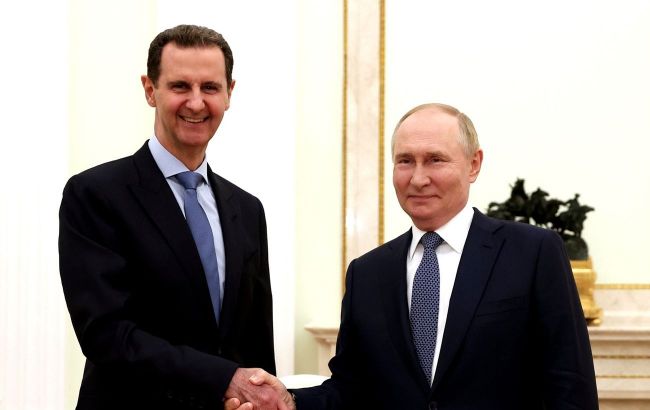Kremlin refuses to extradite Assad in exchange for maintaining its military presence in Syria
 Photo: former dictator of Syria Bashar al-Assad and Russian President Vladimir Putin (Getty Images)
Photo: former dictator of Syria Bashar al-Assad and Russian President Vladimir Putin (Getty Images)
The Syrian authorities officially requested the Kremlin to extradite dictator Bashar al-Assad after he fled to Russia. However, Moscow refused, according to a statement by Syria’s interim president, Ahmed al-Shara, in an interview with The New York Times.
According to al-Shara, in January of this year, Syrian officials asked the Kremlin to extradite Assad as a condition for maintaining Russia’s military presence in Syria. However, it turned out that Russian officials rejected the request.
This marked the first public acknowledgment of the Russian Federation's response to the issue.
Nevertheless, as the media outlet notes, the Syrian authorities still appear open to negotiations with the Kremlin.
"Russia is a permanent member of the Security Council. Syria’s weapons are entirely Russian. And there are many food and energy agreements that Syria has relied on for many years. We must take these Syrian interests into consideration," al-Shara said.
Fall of Assad’s regime
At the end of last year, Syrian rebels overthrew the regime of Bashar al-Assad in Syria. Government forces offered little resistance to opposition forces, and Assad himself fled to Russia.
Amid the developments in Syria, Moscow began withdrawing its ships from naval bases and relocating the remaining weapons from its military installations. Ukrainian officials emphasized that the collapse of Assad’s regime dealt a blow to Russia, as Syria had been one of Moscow’s allies for a long time.
More details on why Assad’s regime failed can be found in the RBC-Ukraine report on Syria.

